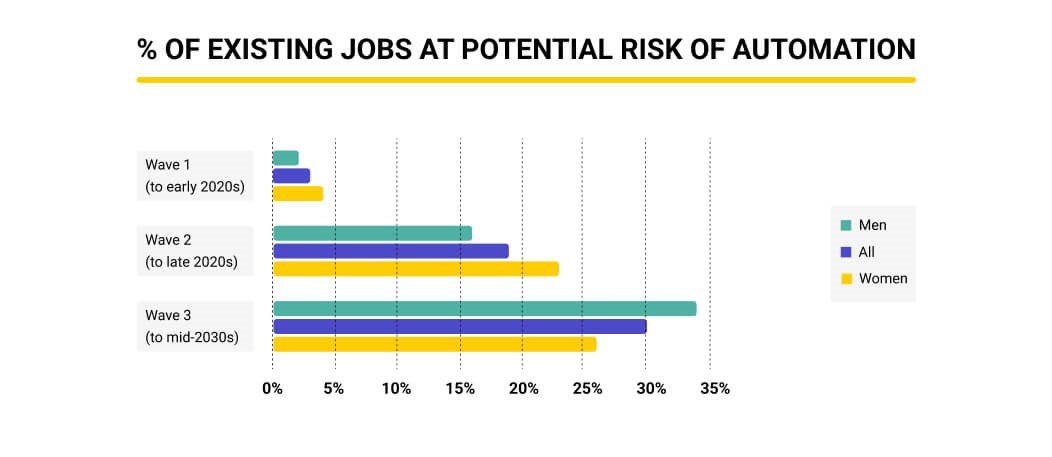AI technologies, such as machine learning, natural language processing, and robotics, have caused some of the most transformative economic and political growth in modern history; by permeating various fields in society, they've led to profound changes in productivity, labor markets, and economic structures. The recent boom has had many impacts on our world's economic state, and has left us with many opportunities, but has also left challenges in its wake as it seems to discreetly integrate itself into every field around us.
Many careers such as manufacturing and even healthcare have begun to merge AI into daily schedules, using AI's potential to enhance productivity, and streamline mundane tasks which stands as one of its most significant economic impacts. For example, AI-powered robots and maintenance systems have minimized downtime leading to larger profits by increasing production rates in manufacturing facilities; AI algorithms have also been assisting patients in healthcare through various forms such as: diagnosing diseases, personalizing treatment, and managing patient data, overall improving patient outcomes and reducing operational costs. Although early on, AI has greatly impacted a wide variety of fields already, and is still growing: in fact, a study by McKinsey Global Institute shows AI’s rapid growth could potentially contribute an additional $13 trillion to the global economy by 2030, primarily through productivity gains and innovation in blue collar jobs.

AI has become relevant in many fields yet despite that, there's more to it than just optimistic results and promising prospects; the recent boom in AI has increased job options for technology fields but has specifically threatened the labor market for almost 85 million jobs globally by 2025, as accredited to the World Economic Forum. While the Forum also suggests nearly 97 million rolls could emerge in tech centered jobs, the world has run on human labor for many centuries at this point, and while this will be a favorable switch, the transition to effectively erase blue collar jobs will not be a seamless one causing much potential for conflict.
Moreover, the AI boom has left the economy teetering on a thin rope to truly reap the benefits of its effectiveness, and falling could have significant implications for economic inequality. For speculation, AI comes with numerous benefits, each with unimaginable innovation; however the advantages will likely be unevenly distributed, potentially exacerbating existing disparities leaving tech-savvy companies to harvest most of the rewards, while smaller firms are left struggling to compete. Henceforth, the government's regulation is essential to prevent greater income inequality and to truly utilize the benefits of AI; a crucial role in ensuring that the gains from AI are broadly shared, through investments in education, the benefits for the entire socioeconomic scene on a worldly scope would increase.
In conclusion, the AI boom is reshaping our economy in profound ways, offering immense opportunities for productivity gains and innovation, while also posing significant challenges in terms of labor market disruptions, economic inequality, and regulatory oversight. Navigating this complex landscape requires a balanced approach that maximizes the benefits of AI while mitigating its risks. Through collaborative efforts between governments, industry, and academia, it is possible to harness the full potential of AI for sustainable and inclusive economic growth.

